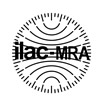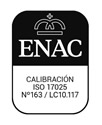ENVIRA enters the maritime sector with tech partner Sinay, a maritime data solutions company, to help measure air quality and pollution for ports in real-time.
The maritime sector and air quality
The maritime sector is generally criticized for its annual impact on the environment, accounting for about 2.5% of yearly greenhouse gas (GHG) emissions. Shipping alone accounts for about 3% of yearly carbon dioxide emissions while growing an average of .5% per year.
Maritime sector activity also grows each year, with more than 90% of all goods and services shipped by sea. The sector is essential to the global economy and ensures international shipping and world trade.
With so much activity and equally many toxic emissions produced, maritime industry air quality impact is now a great concern.
Ports, a central node in the global supply chain, have high activity year-round, welcoming a million tonnes of cargo. Plus, port congestion is on the rise, leaving some ships to wait up to two weeks before docking at the port. As ships wait at anchor and at port, they release toxic emissions and pollutants which negatively affect the surrounding air quality.
Therefore, between heavy fuel emissions released from shipping and pollutants released from industrial activities at ports, maritime industry activities have an impact on air quality. Pollutants released from ship emissions include, among many others, sulfur dioxide (SO2), nitrogen dioxide (NO2), and particulate matter (PM).
Ports thus need to monitor air quality to (1) comply with national regulations, (2) protect the environment, and (3) protect the surrounding port community. Measuring air pollution levels enables ports to be transparent with the community and stakeholders.
Which stakeholders does port air quality affect?
Port air quality impacts the port community, employees, the environment, and market players like logistic companies.
- Port Community – Ports are surrounded by many residents; thus, the air quality directly impacts resident health. If unmonitored, poor air quality can lead to strokes, heart disease, and lung disease. It is essential that pollutants are measured to reduce negative health effects.
- Employees – As employees work on the port premises, air quality monitoring is essential to ensure toxic pollutants do not harm their health.
- The environment – Air quality affects the environment. Just as humans are sensitive to toxic pollutants, so are animals.
- Market players – Air quality also affects market players. First, market players like shipping companies must comply with port air quality strategies. Second, air quality affects market players’ employees when at the port.
Air quality changes each hour, therefore real-time sensors must be used to notify stakeholders of air quality as well as to understand how certain maritime activities are affecting port air quality.
How ENVIRA systems will help ports
The ENVIRA Nanoenvi EQ IoT device for high precision monitoring uses sensors to monitor gas, pollutants, and particles such as hydrogen sulfide (H2S), carbon monoxide (CO), nitrogen dioxide (NO2), sulfur dioxide (SO2), particulate matter (PM2.5, PM10), temperature, and relative humidity in real-time. ENVIRA’s sensors will be placed in port areas to connect to the Sinay Air Module, a dashboard that transforms this sensor data into key indicators using advanced Artificial Intelligence algorithms for ports to monitor air quality in real-time.
Our measuring stations and monitors will enable Sinay to transform quality data into real-time indicators and measurements, helping port authorities to make accurate and reliable decisions about activities possibly impacting port air quality.
At ENVIRA, we are eager to help ports reduce their environmental impact through air quality monitoring.










